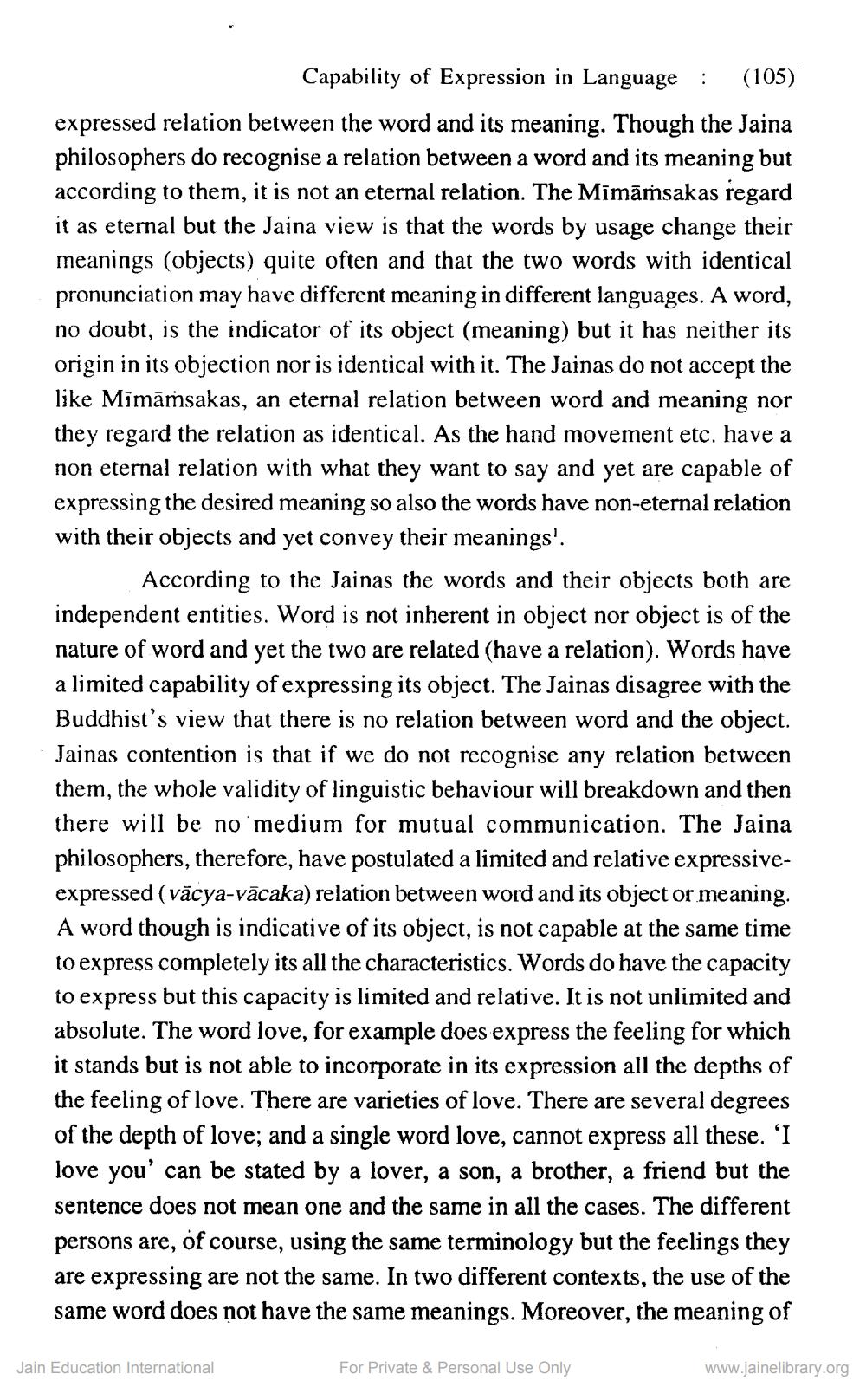________________
Capability of Expression in Language 1: (105) expressed relation between the word and its meaning. Though the Jaina philosophers do recognise a relation between a word and its meaning but according to them, it is not an eternal relation. The Mimāmsakas regard it as eternal but the Jaina view is that the words by usage change their meanings (objects) quite often and that the two words with identical pronunciation may have different meaning in different languages. A word, no doubt, is the indicator of its object (meaning) but it has neither its origin in its objection nor is identical with it. The Jainas do not accept the like Mīmāmsakas, an eternal relation between word and meaning nor they regard the relation as identical. As the hand movement etc. have a non eternal relation with what they want to say and yet are capable of expressing the desired meaning so also the words have non-eternal relation with their objects and yet convey their meanings'.
According to the Jainas the words and their objects both are independent entities. Word is not inherent in object nor object is of the nature of word and yet the two are related (have a relation). Words have a limited capability of expressing its object. The Jainas disagree with the Buddhist's view that there is no relation between word and the object. Jainas contention is that if we do not recognise any relation between them, the whole validity of linguistic behaviour will breakdown and then there will be no medium for mutual communication. The Jaina philosophers, therefore, have postulated a limited and relative expressiveexpressed (vācya-vācaka) relation between word and its object or meaning. A word though is indicative of its object, is not capable at the same time to express completely its all the characteristics. Words do have the capacity to express but this capacity is limited and relative. It is not unlimited and absolute. The word love, for example does express the feeling for which it stands but is not able to incorporate in its expression all the depths of the feeling of love. There are varieties of love. There are several degrees of the depth of love; and a single word love, cannot express all these. 'I love you' can be stated by a lover, a son, a brother, a friend but the sentence does not mean one and the same in all the cases. The different persons are, of course, using the same terminology but the feelings they are expressing are not the same. In two different contexts, the use of the same word does not have the same meanings. Moreover, the meaning of
Jain Education International
For Private & Personal Use Only
www.jainelibrary.org




